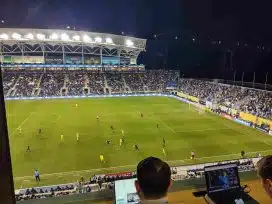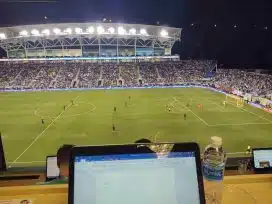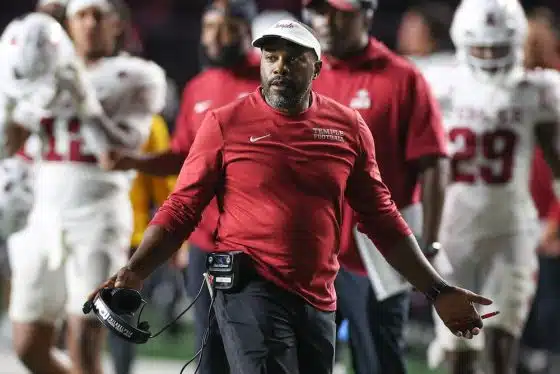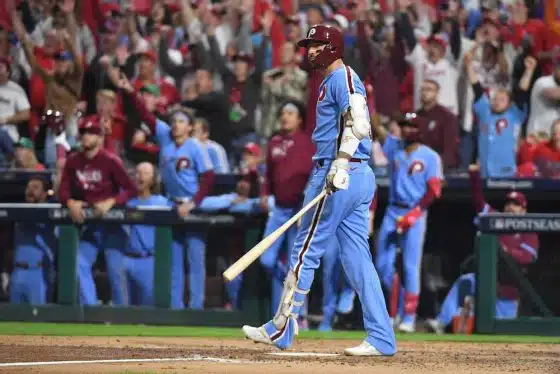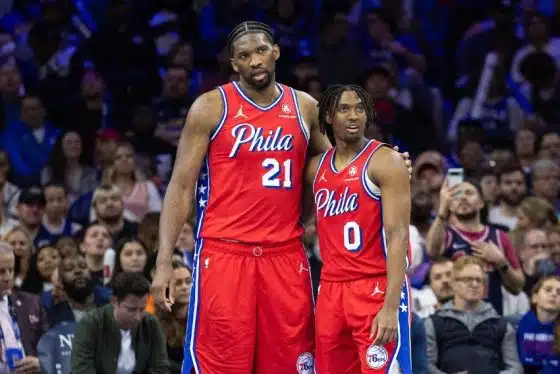Sixers
Breaking Down the Specifics of Ben Simmons’ Contract Extension
One of our leaders.
We have officially signed @BenSimmons25 to a contract extension! #HereTheyCome pic.twitter.com/qut54pQplL
— Philadelphia 76ers (@sixers) July 16, 2019
By Scott Cashin, Sports Talk Philly writer
You might have wondered why it took half of July for the Philadelphia 76ers to extend franchise player Ben Simmons to a designated rookie extension. Well, after more contract details began to emerge, it might have something to do with the negotiations that surrounded escalator triggers and the fifth year early termination option (ETO).
The 76ers can have up to two designated rookie extensions that they sign on the books at any given time. A third can be acquired through a trade. Joel Embiid just finished the base year on his deal. On Tuesday, the team signed Simmons to the other. Unless the team trades one of those players in the next four seasons, the earliest the team could sign another player to a designated rookie extension is when Embiid’s current contract ends.
A few of the requirements of a designated rookie extension contract in addition to the amount of them they can have on the roster are:
- They must start at 25 percent of the salary cap in the base year;
- Players that achieve certain accolades can be eligible for up to 30 percent of the salary cap in the base year;
- They must be five years in length; and
- They can contain a player contract termination clause in the fifth year. This is referred to as an ETO.
There is little doubt that Simmons could command a starting salary worth 25 percent of the salary cap in the base year from any team in the league that could manage to create enough cap space to fit his contract. However, only the team holding his Bird rights during his rookie-scale contract can offer him a fifth year in addition to 8 percent raises each year versus 5 percent raises he could get from another franchise. With the 76ers, he could peak at 30 percent of the projected cap of $116 million ($34.8 million) during the base year of his new contract extension only if he satisfied one of the triggers for the 30 percent max criteria laid out in the Collective Bargaining Agreement (CBA).
Those criteria are:
- being named Most Valuable Player (MVP);
- being named Defensive Player of the Year (DPOY); or
- being named to any one of the three All-NBA teams.
Had Simmons been named MVP in either of the previous two seasons, or been DPOY or named to an All-NBA team in each of the previous two seasons, he would already be eligible for up to 30 percent. Since he didn’t receive any of those accolades, he would have to meet the minimum requirements in this upcoming season to be eligible for greater than 25 percent.
The negotiation for this potential extra five percent base year of the salary cap for franchise-level players is where the heart of the negotiation lives. In some cases, it is simply agreed to by the team in an effort to keep in the good graces of the player moving forward.
In other cases, the team and player have come to a predetermined agreement on some of those listed criteria, triggering 30 percent while not others, or even certain levels of accolades determining a percentage between 25 and 30 percent. Embiid had triggers in his deal that dictated 30 percent max in his base year if named MVP or first team All-NBA. A DPOY or second or third All-NBA award did not escalate to 30 percent in his negotiated deal. As you may recall, Embiid finished on the second team and thus started his base year at 25 percent of the salary cap.
Some teams place an increased percentage determined by the prestige of the award received. As an example, if the player was named to third team All-NBA, it would trigger 26 percent base year. Second team at 27 percent. First team at 28 percent. DPOY awarded 29 percent, and MVP the maximum of 30 percent. Year-over-year raises can range from 0-8 percent, but they are based off the base year salary and the amount does not compound.
Another item to be negotiated is the potential for a trade bonus. If the contract is as reported by ESPN's Adrian Wojnarowski, the bonus could be anywhere from a 0-15 percent increase on his remaining contract years at the time of a trade up to the maximum he is eligible to make in a year based on years of service.
Simmons also has Designated Rookie Extension language in his contract that would elevate his compensation if he earns a spot on one of the All-NBA teams in 2019-20, per source. https://t.co/OPOyN8IPi8
— Adrian Wojnarowski (@wojespn) July 16, 2019
Early reports of contract details indicate that any of the accolades can activate the trigger and that the contract does not contain an ETO. This represents concessions made by both sides.
The benefit of the complete range available accolades for Simmons to obtain to increase his first big payday is obvious – an additional $33 million. The loss of the ability to enter free agency a year sooner benefits the organization more than Simmons. The numbers indicate that more than likely Simmons could have made a higher salary in that fifth season if it was the first year of a new contract. If he made an All-NBA team in 2023-24 and had the ability to terminate the contract early, the cap would only need to exceed $131.3 million for him to be leaving money on the table, that is if he received an accolade this season. If his rookie extension is 25 percent base-year salary, he would have started leaving money on the table at a cap of $109 million in 2023-24. The salary cap is already above $109 million and showing no immediate signs of leveling off. The cap should easily grow to become $20 million higher than that level based on recent growth.
The benefit to the team is not only ensuring Simmons doesn’t leave early via free agency in July of 2024, but also securing what is likely to be a cheaper salary for Simmons in year 2023-24. The NBA luxury tax is a very real system that can quickly get expensive for owners. The 76ers organization is positioned to be taxpayers for the next several years and, short of a rebuild effort between now and then, also likely to be paying the repeater tax that season as well.
If Simmons can be thought of by the league as one of the best six guards this season, his bank account will swell by another $33 million over the next five seasons and management will begin to brace for an even larger tax bill.

















